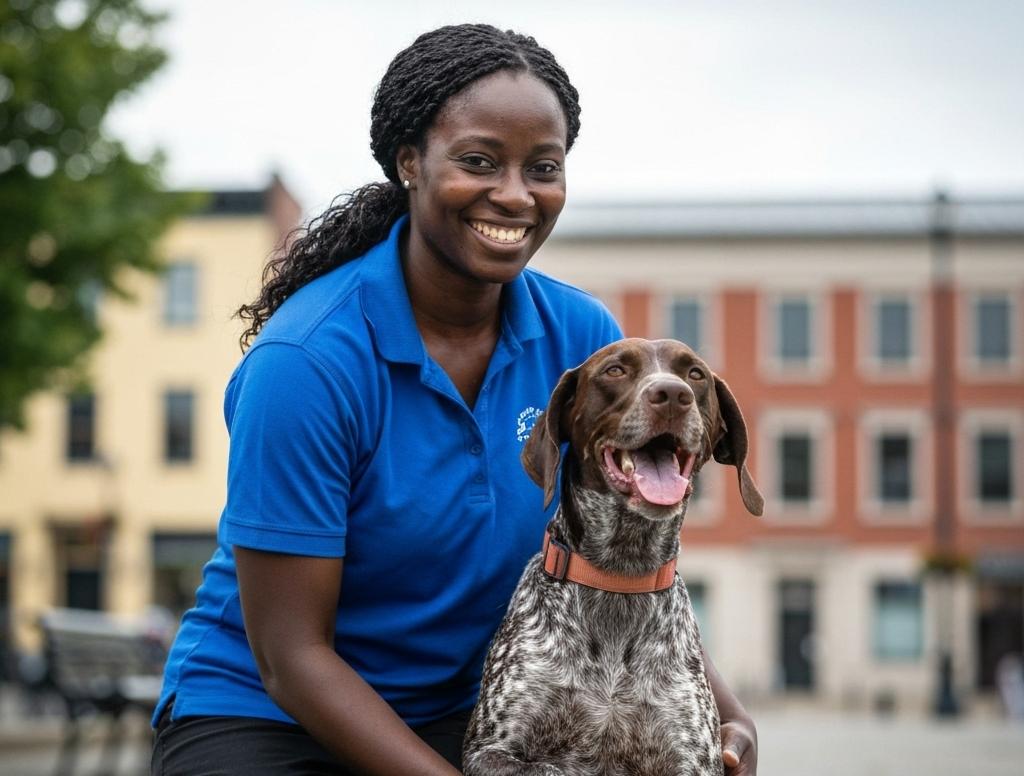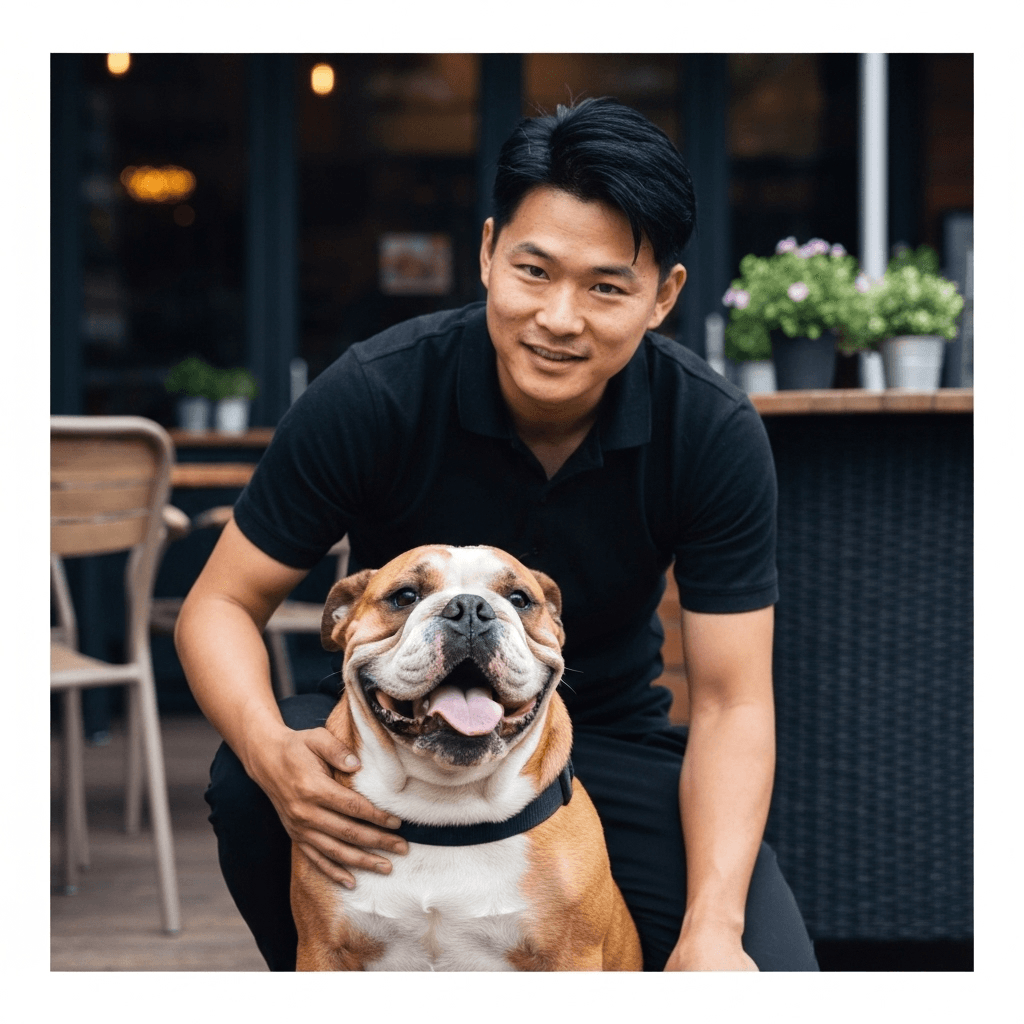Your Complete Guide to Choosing a Dog Trainer in Pennsylvania
Living with a dog in Pennsylvania means preparing them for everything from crowded Philadelphia sidewalks to quiet suburban neighborhoods and hiking trails in state parks. Your dog needs to stay calm and focused whether they’re navigating a busy farmers market or walking past other dogs on a narrow rowhouse street.
The best trainers here understand that real-life Pennsylvania living requires more than basic commands. They’ll help your dog learn to handle the unique mix of urban energy, suburban activity, and outdoor adventures that make this state special for dog families.
How to Choose the Right Trainer
Positive reinforcement training has become the gold standard among Pennsylvania’s most respected dog trainers. This approach builds reliable behaviors by rewarding what you want to see more of, creating confident dogs who actually want to listen rather than dogs who obey out of fear.
When you’re interviewing trainers, ask about their education and credentials. Many of the best professionals in Pennsylvania hold certifications like KPA-CTP, CPDT-KA, CPDT-KSA, IAABC-CDBC, or CBCC-KA. If you want to understand what these letters actually mean, this dog trainer certifications guide breaks down each one in plain English.
Look for someone who plans training sessions that match your actual life. If you live in a rowhouse, you need a trainer who understands tight spaces and close neighbors. If you’re planning weekend hikes, find someone who can prepare your dog for trail encounters with wildlife and other hikers.
While Pennsylvania doesn’t require trainers to carry insurance, most professional trainers maintain general liability coverage. This becomes especially important if they’re running group classes in public parks, since many venues require proof of insurance before allowing organized activities.
Common Dog Training Methods Explained

Positive reinforcement remains the most effective approach for teaching everything from basic manners to complex behaviors. Whether you have a new puppy or a rescue dog with some baggage, this method builds trust while creating lasting results.
Behavior modification takes a more specialized approach for dogs dealing with fear, reactivity, aggression, or separation anxiety. These programs use techniques like desensitization and counterconditioning to help dogs feel differently about their triggers. For complex cases, a good trainer will work with your veterinarian to rule out medical issues.
Puppy training focuses on the critical early months when your dog is learning how the world works. The best puppy programs cover socialization, potty training, bite inhibition, and handling practice that will make vet visits and grooming much easier down the road.
Private lessons work well when you want personalized attention or need to address specific issues in your home environment. Day training lets a professional work with your dog during the week, then teach you how to maintain the progress.
Board and train programs can jump-start intensive goals, but make sure any program includes thorough owner education. The fanciest training in the world won’t stick if you don’t know how to maintain it at home.
If you’re considering service dog training or therapy dog preparation, verify that the trainer understands the specific legal requirements and task training involved in these specialized roles.
Average Cost of Dog Training in Pennsylvania (Updated for 2025)
Training costs vary significantly across Pennsylvania, with the Philadelphia metro area typically running higher than central and western regions. The trainer’s experience level, specialized certifications, and program intensity also affect pricing.
| Service Type | Philadelphia Area | Rest of Pennsylvania |
|---|---|---|
| Group classes, 4 to 6 weeks | $180 – $325 | $140 – $275 |
| Private lessons, 60-90 minutes | $110 – $200 | $85 – $160 |
| Puppy training package, 4 to 6 lessons | $350 – $700 | $300 – $600 |
| Day training, per week | $500 – $950 | $400 – $850 |
| Board and train, 2 to 4 weeks | $2,400 – $4,800 | $2,000 – $4,200 |
| Initial behavior consult | $140 – $260 | $120 – $220 |
Before committing to any program, ask exactly what’s included in the price. Some trainers include follow-up sessions and phone support, while others charge separately for each service. Also clarify travel fees, cancellation policies, and whether you get a consultation session to make sure you’re a good fit.
Questions to Ask a Potential Dog Trainer
- What training methods do you use, and how do you keep sessions positive for dogs?
- What certifications or continuing education do you have?
- How will you customize the program for my dog’s age, breed, and specific challenges?
- Do you offer group classes, private lessons, or board and train, and which would work best for my situation?
- How do you gradually add real-world distractions like busy streets or other dogs?
- What exactly is included in your training packages, and what’s the total investment?
- Do you carry liability insurance?
- For behavior issues, do you work with veterinarians when needed?
- What homework will I need to do between sessions?
- How will I know when my dog is ready to graduate?
Pennsylvania Rules and Practical Tips for Training in Public
Pennsylvania Dog Law requires dogs to be confined or under reasonable control when off their owner’s property. Most municipalities add specific leash requirements in public areas, so check your local ordinances. When in doubt, keep your dog leashed.
All dogs 3 months and older need a current dog license in Pennsylvania. You can learn about requirements and purchase licenses through the official portal at PA Dog License.
Rabies vaccination is mandatory statewide. For current requirements and updates, check the Pennsylvania Department of Health’s information at Rabies in Pennsylvania.
If your trainer wants to hold group sessions in public parks, they may need permits for commercial activities. Responsible trainers handle this paperwork themselves, but it’s worth asking about. Large cities also have noise ordinances about excessive barking that apply during training sessions.
For city-specific rules, Philadelphia outlines pet responsibilities at Philadelphia Animal Laws, while Pittsburgh provides guidance at Pittsburgh Responsible Pet Ownership.
State parks can provide excellent training environments, but pets must follow leash and area restrictions. Check current rules at Pets in State Parks.
State Game Lands have specific seasons and locations where dog training is allowed. Review the Pennsylvania Game Commission’s guidelines at Dog Training on Game Lands before planning any sessions there.
Local Pennsylvania Resources for Dog Owners
Dog Parks and Off-Leash Areas:
- Upper Macungie Township Dog Park, Breinigsville offers separate areas for large and small dogs with detailed rules at Upper Macungie Dog Park
- Beau’s Dream Dog Park at Buchanan Park, Lancaster features double-gated areas and posted etiquette guidelines at Beau's Dream Dog Park at Buchanan Park
- Allegheny County operates multiple off-leash exercise areas throughout the Pittsburgh region with locations and rules at Allegheny County Parks
Government Resources:
- Pennsylvania Dog Law information and licensing details at PA Department of Agriculture Dog Law
- State park pet policies and trail information at DCNR Pets in Parks

Common Questions About Dog Training in Pennsylvania
How much does in-home dog training cost?
Most Pennsylvania trainers charge $85 to $160 per session for in-home training, with higher rates in the Philadelphia area. Multi-session packages usually offer better per-visit pricing.
Is in-home dog training worth it?
In-home training works especially well for potty training, door manners, and behavior problems that only happen in your specific environment. It’s also ideal if you live in a rowhouse or apartment where your dog needs to learn your exact routine and space constraints.
Can you pay someone to house train your dog?
Yes, many trainers offer specialized puppy training or day training programs that focus heavily on potty training and house routines. Make sure they teach you how to maintain the schedule and recognize your dog’s signals.
What is the 3-3-3 rule for dog training?
This rule suggests that new dogs need about 3 days to decompress from major changes, 3 weeks to start learning your routines, and 3 months to truly feel settled in their new home. Training programs that respect this timeline typically see more sustainable progress.
How long will it take to reach my training goals?
Basic obedience skills like sit, stay, and loose leash walking usually take 4 to 8 weeks with consistent practice. Behavior modification for issues like reactivity or anxiety often requires several months of gradual work.
What should I bring to group classes?
Pack a flat collar or harness, a 6-foot leash, small high-value treats, poop bags, a water bowl, and any vaccination records the trainer requests. Leave retractable leashes at home since they make it harder to manage your dog in a group setting.
What’s the leash law in Pennsylvania?
State law requires dogs to be confined or under reasonable control off their owner’s property. Most municipalities add specific leash requirements for public spaces. When you’re unsure about local rules, keeping your dog leashed is always the safest choice. You can find examples of city regulations at Philadelphia’s animal laws.
Do I need a dog license in Pennsylvania?
Yes, all dogs 3 months and older must be licensed annually through their county of residence. You can purchase licenses statewide at PA Dog License.
What shots does my dog need in Pennsylvania?
Rabies vaccination is required by state law for all dogs. Your veterinarian may also recommend core vaccines like distemper-parvo and lifestyle vaccines like leptospirosis based on your dog’s exposure risks. Check current state requirements at Pennsylvania Department of Health.
Are dog trainers required to be licensed in Pennsylvania?
No, Pennsylvania doesn’t require trainers to hold state licenses. However, many professional trainers earn voluntary certifications like CPDT-KA or KPA-CTP, and most carry liability insurance even though it’s not legally required.
Where can I practice off-leash recall?
Stick to designated fenced dog parks and official off-leash areas. Good options include Upper Macungie Township Dog Park, Beau’s Dream in Lancaster, and the various off-leash exercise areas managed by Allegheny County Parks. Always keep dogs leashed outside these designated zones.
Which dog parks allow training around Pennsylvania?
Most dog parks welcome basic training practice like recall and attention exercises, as long as you follow posted rules and stay respectful of other users. Avoid bringing high-value toys or treats that might cause conflicts with other dogs.
What beaches and trails allow dogs for training?
Many Pennsylvania State Parks allow leashed dogs on trails and in day-use areas, though specific rules vary by location and season. Review current policies at DCNR Pets in Parks. For State Game Lands, dog training has specific seasonal restrictions and location limits outlined at Game Commission dog training rules.
Do trainers need insurance in Pennsylvania?
While not required by state law, responsible trainers carry general liability insurance to protect themselves and their clients. Many parks, event venues, and landlords require proof of insurance before allowing training classes or demonstrations.
What if my dog is a “barker” in an apartment?
Most municipalities have noise ordinances that can affect barking dogs, especially in dense housing areas. Training can address alert barking and boredom-related noise through enrichment, exercise, and teaching quiet cues. For city-specific guidance, check resources like Pittsburgh’s responsible pet ownership guidelines.
Finding the right trainer in Pennsylvania comes down to matching their approach with your dog’s needs and your family’s lifestyle. Whether you’re preparing a puppy for city life or helping a rescue dog overcome past challenges, the combination of positive methods, professional credentials, and regular practice in real-world settings will give you the best chance of success. If you want to verify a trainer’s professional background, certifications like IAABC-CDBC and CPDT-KSA indicate advanced education in behavior and training science.
